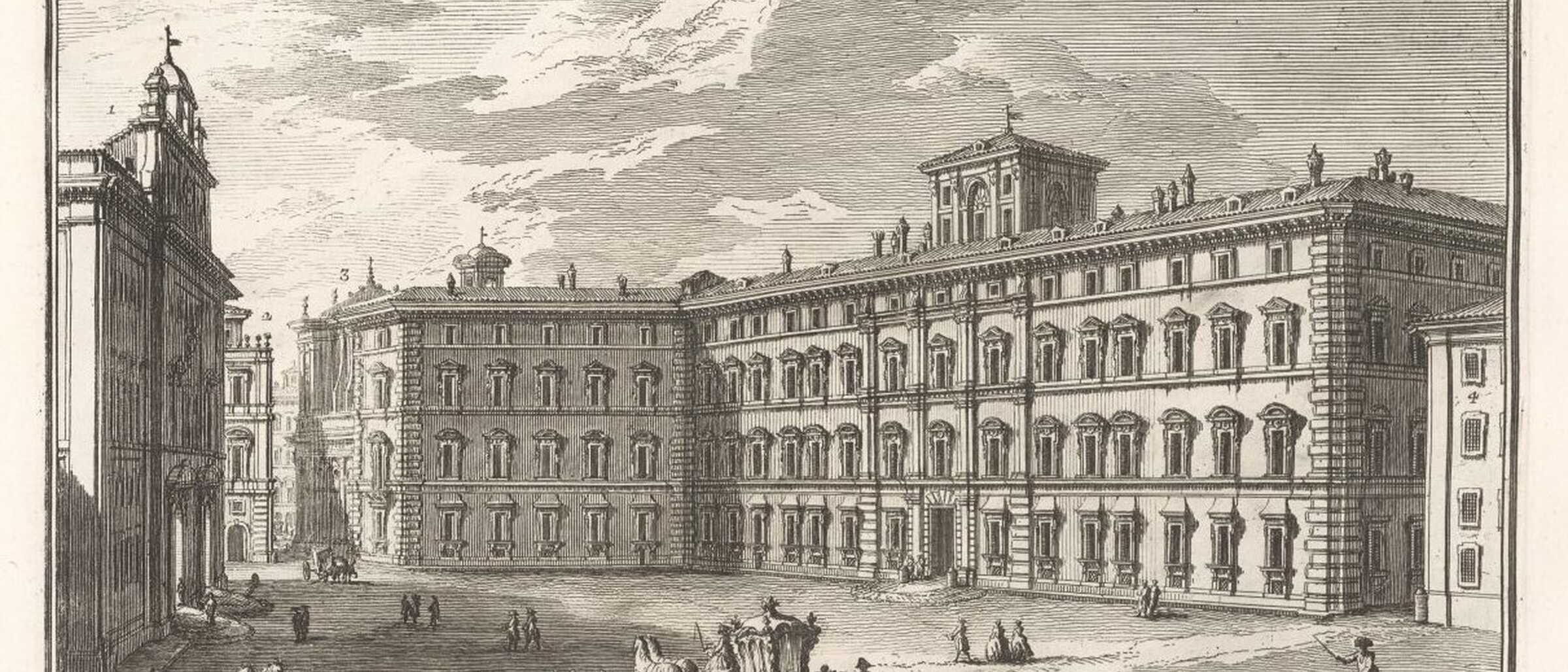Handel's Treasures - Music in Dialogue
Works by G. F. Händel, A. Corelli, A. Caldara und G. Bononcini

Il delirio amoroso – Handel's contemporaries in Rome
Members of the Handel Festival Orchestra Halle:
Thomas Ernert (oboe), Birgit Schnurpfeil (violin), Carolin Krüger (viola), Johannes Hartmann (cello), Eunyoung Lee (harpsichord)
Discussion partner: Dr. Juliane Riepe (Head of Library/Archive/Research Department, Handel House Foundation)
The special exhibit: Palazzo Pamphili, copperplate engraving from: Giuseppe Vasi, Raccolta delle piu belle vedute antiche, e moderne di Roma, Rome 1786 (BS-IIc 16, 83)
Venue: Handel House, Chamber Music Salon
Organizer: Händelfestspielorchester Halle in cooperation with the Handel House Foundation
18,00 € / reduced 9,00 €
Programme:
Georg Friedrich Händel: Excerpts from “Il delirio amoroso: Da quel giorno fatale”
Arcangelo Corelli: Violin Sonata in D minor, Op. 5 No. 12 “La Follia”
Antonio Caldara: Trio Sonata in G major, Op. 1 No. 2
Giovanni Bononcini: Suite for Strings, Oboe, and Basso continuo
The concert references both the motto of the previous Handel Festival 2025 (“The Young Handel in Italy”) and the theme of the annual exhibition (“Handel in Rome”). We are relatively well informed about Handel's work in Rome. However, we know very little about the music of his contemporaries in the Eternal City. The small-scale instrumental works of the musicians from Handel's circle are rarely performed, even though they were composed by composers who were famous at the time and are still well-known today. Handel played music with Corelli in Rome and probably met Caldara there; he met Bononcini in London, if not already in Berlin in 1702.
A contemporary view of the Palazzo Pamphili in Rome, residence of Cardinal Benedetto Pamphili, was selected as the “treasure.” Arcangelo Corelli played music for him and, on his behalf, composed several works by Handel in 1707, including the cantata Il delirio amoroso. The copperplate engraving invites us to reflect on where and in what contexts the music that will be performed in our concert was heard – concerts as we know them did not yet exist in Italy around 1700.